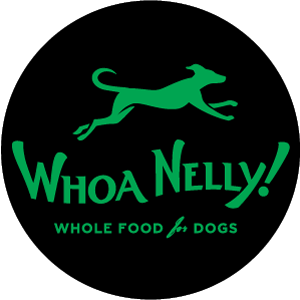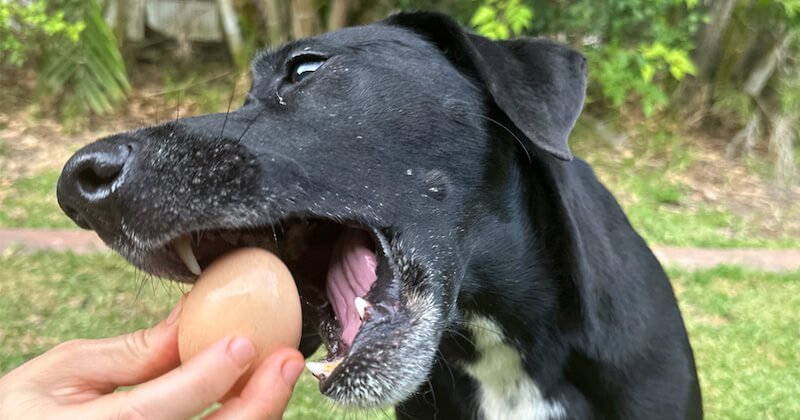Raw Eggs Are Safe For Dogs
I can’t believe feeding eggs to your dog is controversial. But a quick google search says otherwise.
The top result says that raw eggs are dangerous and to never feed them to your dog. It cites safety concerns such as salmonella and the potential for biotin deficiency.
And even more concerning, mainstream source PetMD.com claims “there is no nutritional benefit in feeding raw eggs to dogs.” What??
🤦♂️
Eggs are highly nutritious
There’s lots of reasons to feed to eggs. They are a great source of protein, fatty acids, vitamins and minerals. The yolk contains the healthy fatty acids, while the whites are almost pure protein.
Rich in choline, eggs help to regulate memory and mood. Eggs also contain antioxidants lutein and zeaxanithin which help to protect the eyes. Finally, eggs are a complete source of essential amino acids which build and repair the body.
Clearly there are significant nutritional benefits to feeding eggs!
But what about the pathogen risk?
Salmonella risk
People eat raw eggs all the time. Raw egg is the key ingredient in mayonnaise and aioli. I crack a raw egg into my morning smoothie no worries. If it’s safe for humans, it’s safe for dogs.
Even from a governmental perspective eggs are safe.
Our Kangaroo & Chicken recipe contains raw eggs. This recipe has been approved by Safe Food QLD using the same safety procedures we use to handle raw meat. As far as Queensland’s food safety regulatory body is concerned, it is safe to feed raw eggs to dogs.
Of course as with any animal product there can be issues of freshness and quality. Only feed fresh and healthy eggs that have been stored in a fridge. And it’s probably best to avoid for at risk dogs like pregnant bitches.
Keep in mind a dog is probably more likely to get sick from eating kibble than from a raw egg.
Biotin deficiency
Biotin is a B vitamin which is important for fatty acid metabolism. A deficiency can cause skin and nail health problems and is definitely something you want to avoid.
The reason this is an issue is because egg white contains avidin, an enzyme that prevents the absorption of biotin. It is claimed that cooking the egg denatures the avidin allowing biotin to be absorbed normally, hence only feed cooked eggs.
However, one study shows that cooking only partially denatures avidin, and that around 40% is still active. Hmmm.
The reality is that biotin deficiency is rare in dogs. It is only likely to happen if you feed large amounts of raw eggs over a prolonged period of time. Feeding the occasional raw egg is unlikely to cause a biotin deficiency.
Allergies and eggs
Eggs contain protein, so it is possible that some dogs may be allergic to them. In my experience this is pretty rare, and generally occurs with dogs that are sensitive to many foods.
If your dog is prone to allergies, or scratches lots, avoid feeding them eggs while you figure out what is causing the issue. For normal healthy dogs, feeding eggs is unlikely to cause an issue.
What to buy
Like with everything food related, sourcing matters! Please avoid feeding cage eggs. Choose free range eggs, or organic pastured eggs if your budget allows.
Don’t buy cracked or dirty eggs. And don’t wash them either - it can push bacteria into the centre of the egg. Store your eggs in the fridge, and feed them before their best before date.
Don’t feed your dog eggs you wouldn’t eat yourself.
How to feed
Simple: crack one over your dogs dinner! Just don’t go overboard - a couple of nights a week is perfect 🐾






